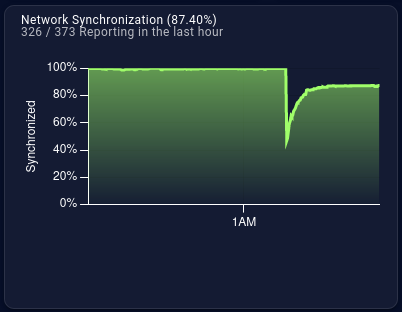Cardano demonstrates resilience of DLT
Distributed ledger technologies (DLTs) like Cardano have the potential to revolutionize many industries by providing a secure and decentralized way to manage transactions and data. One of the key advantages of DLTs is their ability to be more resilient to network outages than traditional centralized systems.
In traditional centralized systems, there is a single point of failure that can bring the entire system down. This is often the case with servers and databases that are used to store and process data. If the server or database goes down, the entire system becomes inaccessible, and all transactions come to a halt.
DLTs, on the other hand, are decentralized and distributed across a network of nodes. This means that there is no single point of failure, and the network can continue to function even if some nodes go offline. In the case of Cardano, the network is powered by a proof-of-stake consensus mechanism, which allows for a decentralized and distributed network of validators to confirm transactions and maintain the integrity of the ledger.
This decentralization and distribution of nodes also make DLTs more resistant to network outages caused by natural disasters, power failures, or other types of disruptions. In a centralized system, a natural disaster or power failure in the area where the server is located could bring the entire system down. With a DLT, however, the network can continue to function as long as there are enough nodes online to reach consensus and confirm transactions.
Recently, on January 25, 2021, the Cardano network faced outages caused by an update. Even though 60% of all block-producing nodes went down, the network itself was only degraded in performance. It faced issues for about two minutes during which some of the nodes went offline due to a software bug that was introduced during the update. However, the network quickly recovered and the bug was fixed, with no loss of data or transactions. This incident highlights the ability of DLTs to quickly recover from network outages and maintain the integrity of the ledger.

IOHK, the company behind Cardano, acknowledged the incident on Twitter and explained that the outage was caused by a software bug that affected a small number of nodes. They also stated that the team responsible for maintaining the network acted quickly to fix the issue and bring the network back online. This incident showed that even in the face of network outages, the Cardano network is able to quickly recover and maintain the integrity of the ledger.
Furthermore, the Cardano network also has a feature called "soft forks" which allows for updates to be made to the network without any interruption of service. This means that the Cardano network can be updated and improved without any downtime.
Decentralization and distribution of nodes across the network make DLTs more resilient to natural disasters, power failures, and other types of disruptions. Cardano, in particular, with its proof-of-stake consensus mechanism and soft forks feature, and over 3000 nodes offers a secure and decentralized way to manage transactions and data, providing an added layer of security and reliability to the network.





